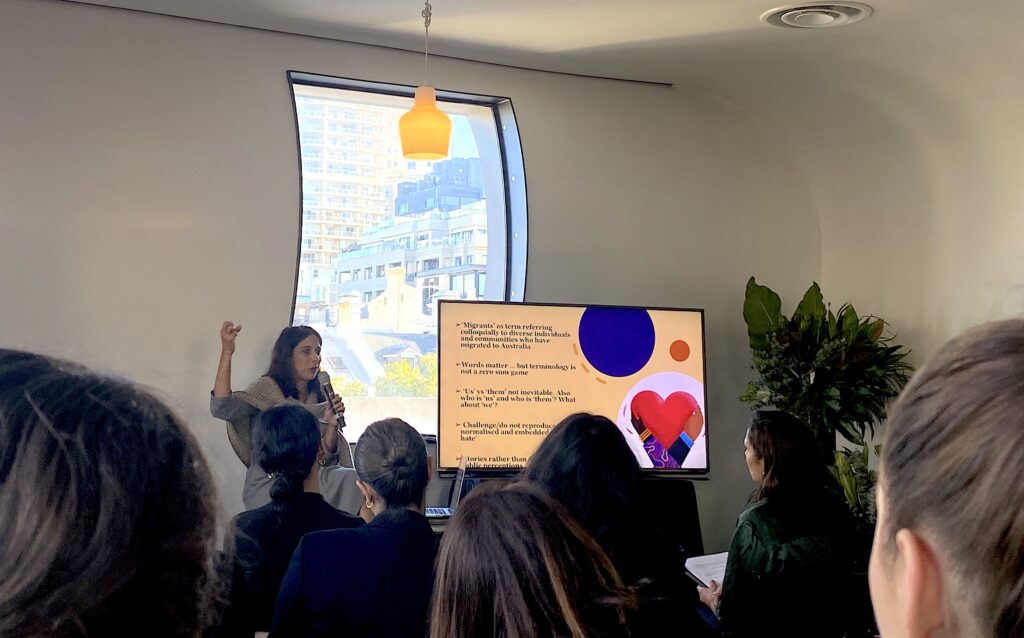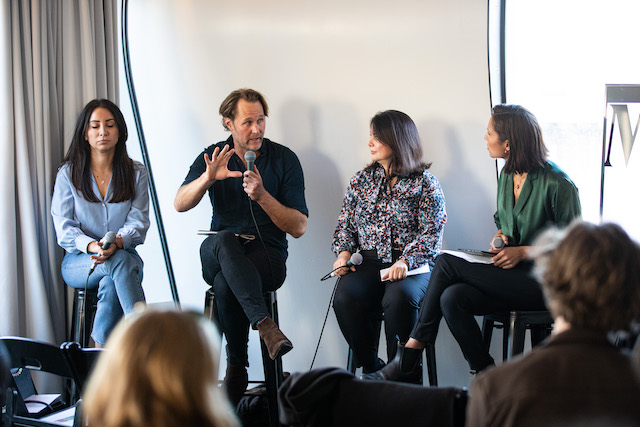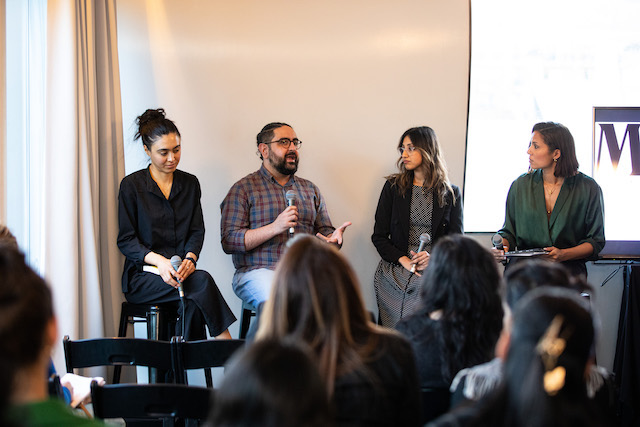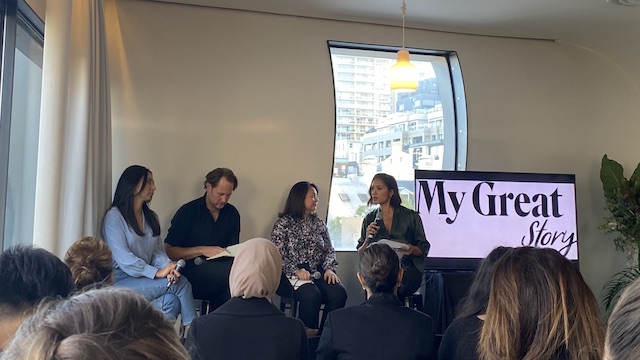Newsroom students, Adriana Wainstok and Yi Xu, attended the launch of the ‘MyGreat Story’ and collaborated on this report.
The United Nations Office of the High Commissioner for Human Rights launched the ‘MyGreat Story’ campaign in Potts Point, Sydney on September 14. In partnership with Love Franky and Google News Initiatives, the event encourages early-career journalists and students to rethink how migration is spoken about in the media.
The campaign brings UN Human Rights’ global #StandUp4Migrants initiative to Australia and aims to encourage positive attitudes towards migrants. In partnership with Love Frankie, ‘MyGreat Story’ aims to build human rights-based narratives and promote a culture of welcoming migrants in Australia – by using food to create common ground and a safe space to reimagine dialogue on migration.

The panel discussions aimed to explain the importance of replacing narratives of fear division and exclusion of this significant part of Australia’s population.
Latouff drew the attention of the journalists and university students to the fact that Australia does not collect any demographical data on migrants in the job market. When Media Diversity Australia released its report, the results revealed that only white Australian men occupy the roles of News Director in the country.

Andrea Ho, Director of Education at Judith Neilson Institute for Journalism and Ideas, provided another perspective on journalism diversity and unequal employment opportunities. She encouraged student journalists who are not Anglo-Saxon to utilise their unique advantage to get jobs.
“With the progress of society, employers would like to have journalists from different contexts,” she said. “Journalists who speak other languages, especially who have sense of the culture behind the languages, are better able to cover the stories of specific groups of people.”
Journalists from The Guardian answered the question about how to avoid deepening stereotypes of migrants in news coverage. Immigrant correspondent Ben Doherty suggested that coverage by others can be biased and reinforce their image of vulnerability and marginalisation.
“It is vital to let the protagonist tell his or her own story,” he said.
Reporter Mostafa Rachiwani said love may be the only antidote to prejudice in reporting issues.

“Being on the sidelines can cause reporters to focus too much on clicks and the dramatic storyline at the expense of the information that the protagonists need to convey,” he said. “Love the person you’re interviewing, then you can really help them to get rid of the vulnerable dilemma.”


